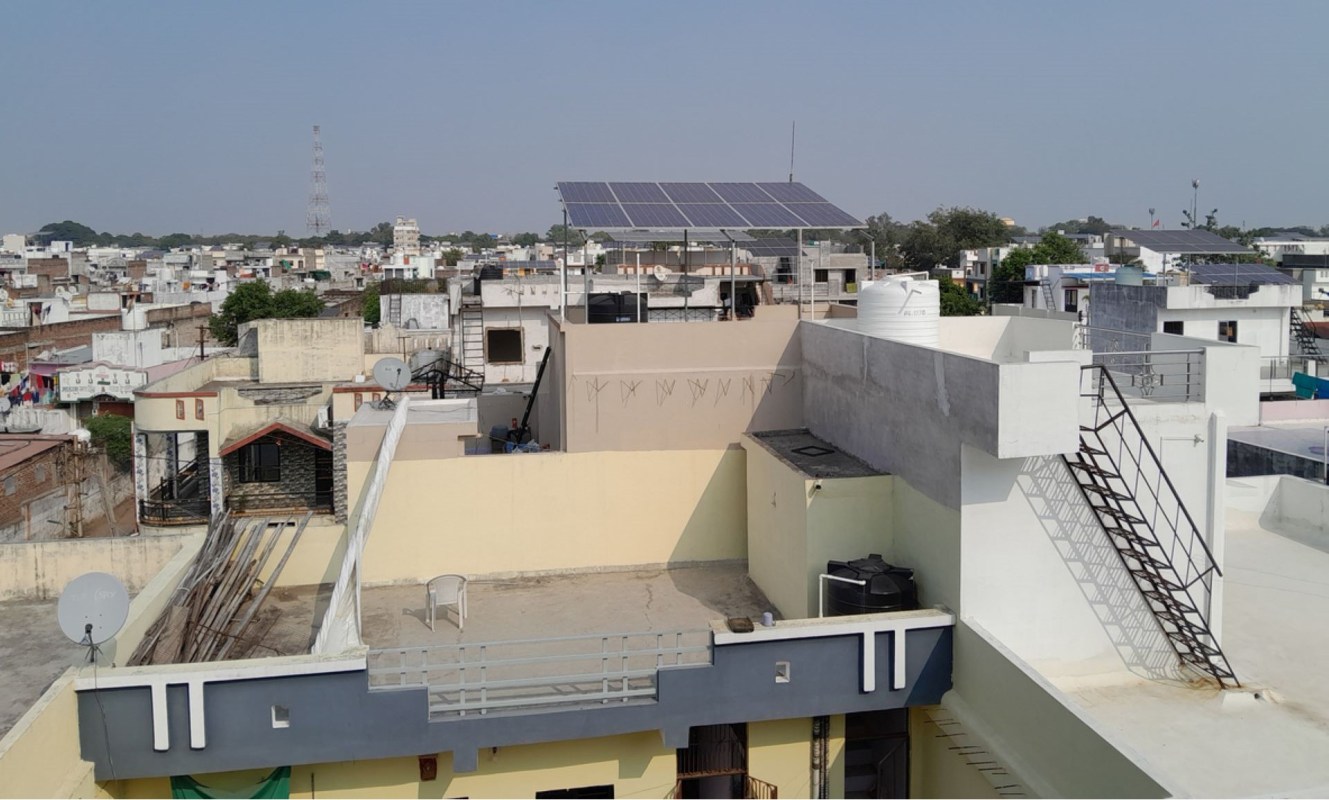In a big win for clean energy, the planet, and its citizens, the Indian government has removed red tape that was making it difficult for individual homeowners to install rooftop solar panels. This streamlining of the approval process is an attempt to help the country meet its clean energy goals.
"We had to get 45 signatures to set up a small rooftop solar connection in 2021," Shreya Mishra, CEO of Mumbai-based Solar Square, one of India's largest rooftop solar companies, told the AP. "Today it's almost instantaneous."
This month, the government also announced $9 billion in subsidies for homeowners installing rooftop solar panels, which should hopefully spur even faster adoption of the technology. Though solar panels can save homeowners a lot of money on energy bills in the long run, their upfront installation costs can be high, preventing many from taking advantage.
Ruchika Chahana, a resident of the affluent Greater Kailash neighborhood in New Delhi, installed rooftop solar panels in 2023 — before the new subsidies had been announced — at an upfront cost of nearly $5,000, as the AP reported.
However, she said her monthly energy bills have dropped dramatically, from $200 to $50. "It is a little expensive, but it's totally worth it," she said, adding that she and her family feel great about "doing something to save the planet."
If she saves $150 every month, it would take Chahana just under three years to pay for installing the solar panels. For people who can take advantage of the subsidies, that will happen even faster.
Making it easier for homeowners to harvest clean, renewable energy should be a no-brainer for governments: It decreases air pollution, reduces strain on the energy grid, and helps citizens have a better quality of life.
However, just as governments can make this process easier, they can also do the opposite. In 2022, California significantly cut rooftop solar-related credits, and the following year, rooftop solar panel sales fell by 85%.
While that may be discouraging, it shows just how much of a difference these subsidies make in terms of cutting our overall planet-overheating pollution and helping homeowners save money.
Join our free newsletter for easy tips to save more, waste less, and help yourself while helping the planet.









